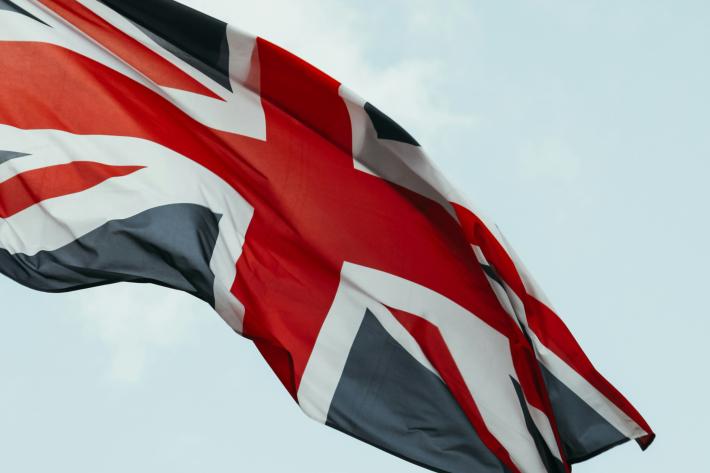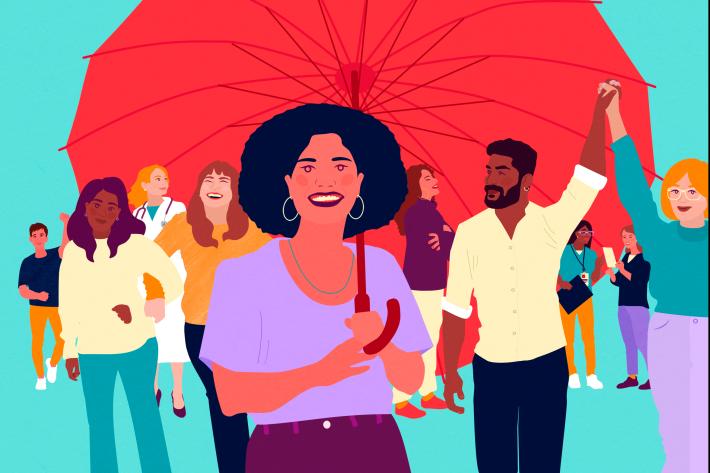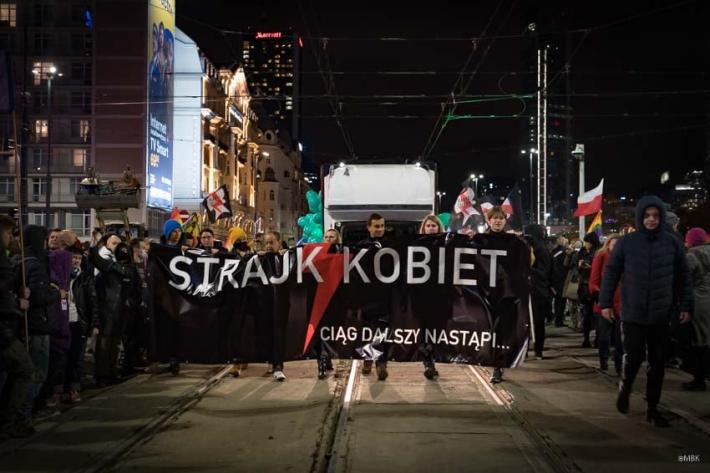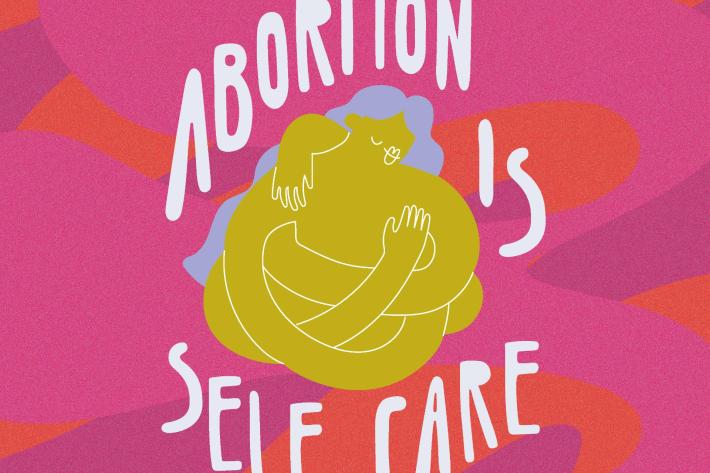
Spotlight
A selection of news from across the Federation

European Commission's new Women's Rights Roadmap includes SRHR—Now we need action
On 7 March, the EC released a new political declaration committing to uphold and advance women's rights. We welcome the inclusion of SRHR and other key topics. Now impactful actions are needed.
Filter our news by:


| 12 March 2025
European Commission's new Women's Rights Roadmap includes SRHR—Now we need action
On 7 March 2025, the European Commission released its new Roadmap for Women’s Rights - a political declaration that reaffirms its determination to uphold gender equality and sets out a long-term vision for how it will advance women’s rights. IPPF EN welcomes this crucial commitment at a time when ultraconservative movements are gaining influence in the EU and around the world, threatening progress on women's rights, including their sexual and reproductive health and rights (SRHR). We particularly value the inclusion in the Roadmap of the following key commitments, which are at the heart of our demands to the EU: 1. Highest Standards of Health The Roadmap reiterates that every woman has the right to the highest attainable standards of physical and mental health, with notably a focus on SRHR. It commits to supporting and complementing health action by Member States in this field, in full respect of the Treaties. IPPF EN strongly supports this inclusion of SRHR in the Roadmap, by which the European Commission highlights that SRHR are women’s rights and part of EU values. But it is important to note that SRHR are not only a health issue – they are also fundamental rights intertwined with the clear EU priorities of achieving gender equality and fighting against sexual and gender-based violence. We urge the EU to take bold, actionable steps in the upcoming Gender Equality Strategy to implement international commitments, international human rights and public health standards on SRHR, and ensure that Member States guarantee access to comprehensive SRHR services for all in the EU, including safe and legal abortion. Other objectives in the Roadmap include ensuring respectful and high quality obstetric, gynaecological, antenatal, childbirth and postnatal care, free from discrimination and harmful practices; promoting gender-sensitive medical research, clinical trials, diagnostics and treatments; and ensuring access to affordable menstrual hygiene products and contraception. IPPF EN welcomes the prioritisation of obstetric care, of which access to abortion care is an integral part; and calls for the recognition and combating of all forms of obstetric and gynaecological violence, including mistreatment during and denial of abortion care. 2. Freedom from Gender-Based Violence The Roadmap outlines actions to combat all forms of violence against women and girls, including sexual violence and rape, based on lack of consent, and to ensure support and protection for victims of violence. IPPF EN urges Member States to provide access to sexual and reproductive healthcare services to victims of sexual violence, which should be free of charge, sufficiently resourced and accessible at all times and throughout the country, in line with the EU Directive on Violence Against Women. 3. Comprehensive Sexuality Education We strongly welcome the inclusion of comprehensive sexuality education promotion in the Roadmap. Comprehensive sexuality education, which includes consent education, is essential for enabling young people to form happy, healthy, and safe relationships free from violence and discrimination. 4. Institutional Mechanisms and Funding The Roadmap stresses the need for strong institutional mechanisms and sustainable funding for gender equality policies and women’s rights organisations. IPPF EN calls for the priorities outlined in the Roadmap, and the forthcoming Gender Equality Strategy, to be adequately funded, particularly in light of the upcoming negotiations on the EU Multiannual Financial Framework. A strong women’s rights movement is the most effective way to counter threats of retrogression. The EU should increase its protection and political and financial support to organisations and human rights defenders who fight for women’s rights, including SRHR. 5. Intersectionality The Roadmap recognizes the importance of addressing intersectional discrimination, but we regret the omission of ‘gender identity’, ‘sexual characteristics’, and ‘migration status’ as discrimination grounds. We call on the EU to address the specific needs of trans, non-binary, intersex, and migrant and undocumented women, who face unique challenges. “It is a welcome first step that SRHR and other crucial topics have been included in the Roadmap for Women’s Rights. The Roadmap should now pave the way for the new EU Gender Equality Strategy post-2025 and be followed up with impactful actions. We stand ready to work with the European Commission and Member States to transform these principles into reality,” said Micah Grzywnowicz, IPPF EN Regional Director. Image credit: Fátima Bravo for Fine Acts

| 23 October 2024
Joint civil society letter to the European Commission on Recommendation on harmful practices
IPPF EN, together with around 80 civil society organisations, healthcare professionals and academics working to advance women’s rights and the rights of LGBTI people, address letter to President von der Leyen to express our deep concern at the long delay in the publication of the European Commission Recommendation on the prevention of harmful practices against women and girls. We urge the current Commission to adopt the Recommendation swiftly or guarantee its adoption by the next Commission before 2025, in line with the clear commitments made under the Gender Equality Strategy and the LGBTIQ Equality Strategy 2020-2025. We strongly support the adoption of this Recommendation, which will provide effective guidance for Member States on ways to address various harmful practices, including those committed to in the Gender Equality Strategy 2020-2025 and in the LGBTIQ Equality Strategy 2020-2025. Furthermore, we call on the Commission to ensure all forms of obstetric and gynaecological violence, mistreatment and abuse are included in this Recommendation. We strongly believe this Recommendation would fill a critical gap and make a substantial contribution towards protecting women and girls in all their diversity from all forms of harm in the EU. Please read the full letter below.
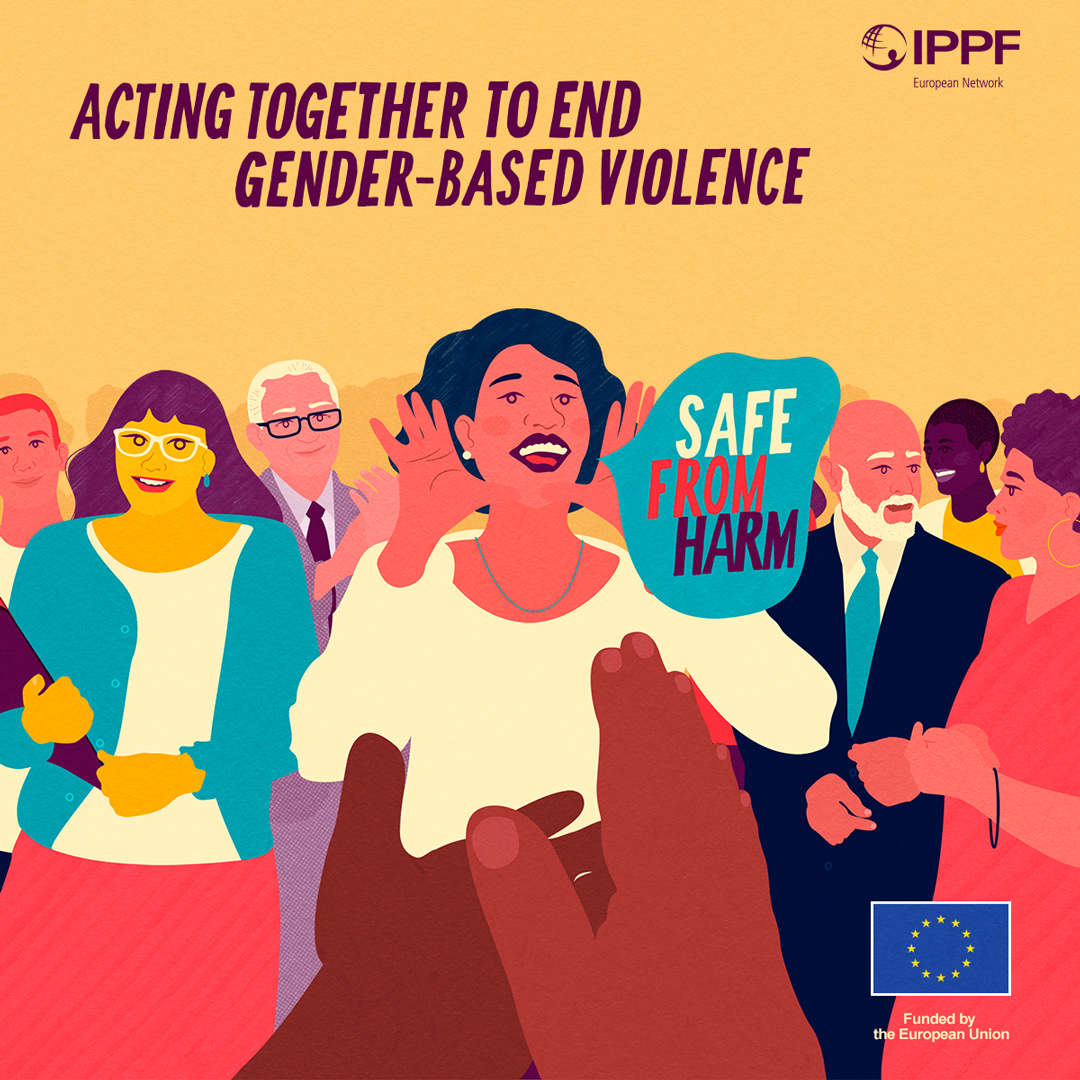
| 25 January 2024
Civil society calls for a robust EU Directive on violence against women and domestic violence
On 24 January, as final negotiations on the EU Directive on combating violence against women and domestic violence are taking place, IPPF EN and 11 other NGOs called on negotiators to take effective action and ensure that a robust Directive is urgently adopted. An open letter to negotiators in the Belgian Presidency of the Council of the European Union, Member States, the European Parliament and the European Commission ahead of the final negotiations of this mandate on the Directive on combating violence against women and domestic violence (COM (2022) 105 final, 8 March 2022) We are writing as concerned organisations[1] that advocate for human rights, gender equality, and the right for all to live free from violence. As we have entered the final weeks of European Union institutions’ ability to negotiate legislative files before the next European elections, we call on European governments to level up and take effective action to combat violence against women and domestic violence by urgently adopting a robust Directive. We welcome this proposed Directive, as it provides much needed comprehensive responses, incorporating prevention, protection, support for victims and prosecution for a range of criminal offences which constitute violence against women and domestic violence. The adoption of this Directive is, however, endangered due to several Member States’ failure to agree to strengthen laws and policies at the EU level and endorse crucial measures supported by the European Commission and the European Parliament, as well as by diverse civil society organisations across Europe. If agreement is not reached in the next weeks, there are serious risks of this proposal being further weakened or not adopted at all under the next mandate of the European Parliament. This would leave women and other people affected across the EU without adequate protection from gender-based and domestic violence. We urge national governments to transform lip service to ending violence against women into concrete and effective action against this scourge that affects millions in the EU, including by ensuring that rape based on lack of consent is a criminal offence across the EU. We have been dismayed to see Member States propose rejecting the unprecedented opportunity to criminalise rape in this Directive. It is utterly unacceptable that some Member States are stubbornly unresponsive to the need to combat rape across the EU, hiding behind restrictive legal interpretations on EU competences. Sexual violence against women is endemic across the EU, with widespread impunity. Consent-based definitions have proven to guarantee greater protection and access to justice for women and other victims of rape, including increased reporting and prosecution rates. We urge governments to act in accordance with their international and regional human rights obligations, particularly under the Istanbul Convention, and agree on the most robust Directive possible to prevent, prosecute and redress violence against women. Therefore, as organisations closely engaged on the issues at hand, we call on Member States to ensure that the Directive criminalises rape with a consent-based definition, as well as female and intersex genital mutilation, forced sterilisation, forced marriage, and sexual harassment in the workplace. It should combat violence on grounds of sex and gender, and address intersectional discrimination, with specific attention paid to LBTIQ+ women, women sex workers, and women who are undocumented migrants or have an insecure or dependent residence status. We call for strengthened protection and access to justice for victims, including access to compensation and safe reporting mechanisms through the establishment of strict firewalls between immigration and other authorities to ensure survivors are not deterred from reporting violence due to their residency status. The Directive should further guarantee comprehensive support to victims and access to both general and specialist support services, including the clinical management of rape and comprehensive sexual and reproductive health care for victims of sexual violence, as well as support for child victims. We also call for the adoption of widespread and effective preventive measures, including a clear obligation to provide comprehensive sexuality education. For more detailed recommendations, we refer to our joint position published in 2023. There are times when political decisions can make a profound difference to millions of people’s lives. This is one of them. Member States have an opportunity to enact a Directive that can be truly transformative. We call on you to show courage and leadership and grab this opportunity. Sincerely, International Planned Parenthood Federation – European Network (IPPF EN) Amnesty International Center for Reproductive Rights End FGM European Network EuroCentralAsian Lesbian* Community (EL*C) European Sex Workers Rights Alliance (ESWA) Human Rights Watch La Strada International, European NGO Platform Against Trafficking in Human Beings Organisation Intersex International Europe (OII Europe) Platform for International Cooperation on Undocumented Migrants (PICUM) The European region of the International Lesbian, Gay, Bisexual, Trans and Intersex Association (ILGA-Europe) Transgender Europe (TGEU) [1] Our organisations work on a diverse range of women’s rights issues. In the drafting of this document, we have been led by the expertise of women’s rights organisations and women human rights defenders from communities most impacted by the specific forms of violence described in each section. Our commitment to the text represents our coming together as a collective with shared values, even though not every organisation has its own policy or programme of work dedicated to each issue. We centre and affirm the expertise of women human rights defenders in all their diversity, and encourage the European Commission, the European Parliament, and the Council of the EU to do the same.

| 22 November 2023
Digital Fireside Chat on Combating Violence
Join us on Instagram on December 7 at 10.30am CET, to discuss how to achieve #AWorldWhere we are all free from gender-based violence together with Sonali Silva, SRHR activist and co-chair at SheDecides, Josephine Odhiambo, Program Lead at Youth Changers Kenya, and Esme Stuart, Programme Manager – Human Rights, Gender and Youth at the European Commission, DG INTPA. During this event, our guests will share their reflections on the challenges we face in combating gender-based violence globally and the solutions we have at our disposal to ensure we all live in a safer world. Violence against women is endemic in every country and culture with 1 in 3 women across the globe expected to experience physical or sexual violence in their lifetime. We know this number is higher in some places, affecting 2 in 3 women. We have a shared responsibility to help create more gender equal societies in which everyone is safe from harm and treated with dignity. We will also discuss how sexual and reproductive health and rights can be part of the solutions that we know are effective to prevent, protect and support survivors. What can you expect? We will be talking about the benefits of directly funding grassroot feminist organisations and movements that work to end gender-based violence and how our communities can change for the better if we work together to redesign systems so that they protect everyone. We will also be speaking about the role of the European Union in fighting gender-based violence globally. Join our Instagram Live and follow @C2030Europe for updates! Add this to your calendar. The Instagram Live is organised under the umbrella of the #AWorldWhere campaign aiming to drive Europe’s global commitments on sexual and reproductive health and rights, to meet Sustainable Development Goals targets, advance gender equality and strengthen health systems. #AWorldWhere is a Countdown 2030 Europe initiative driven by 15 leading European non-governmental organisations advocating for sexual and reproductive freedom worldwide. Illustration: Jessica Whitney Crowe

| 25 September 2023
EU negotiations on bill to Combat Violence Against Women: Joint civil society position
In the final months of 2023, the EU institutions will hold a series of "trialogues" - negotiations between the EU Council (national governments), European Parliament and European Commission aiming to agree on the final wording of the draft EU Directive on Combating Violence Against Women. This is a crucial moment in the legislative process, since both the Council and the Parliament adopted their initial negotiating positions in June: MEPs voting to strengthen key provisions of the European Commission's ambitious original proposal, but Member States inexcusably proposing to water down vital elements of the bill, notably by failing to support the criminalisation of rape. At this key moment, IPPF EN and our civil society partners have prepared a joint position setting out a clear call to action to the EU institutions if they are to ensure this landmark proposal becomes a truly effective tool in our shared fight to end gender-based violence and create more gender equal societies for all. Download the joint position below.









